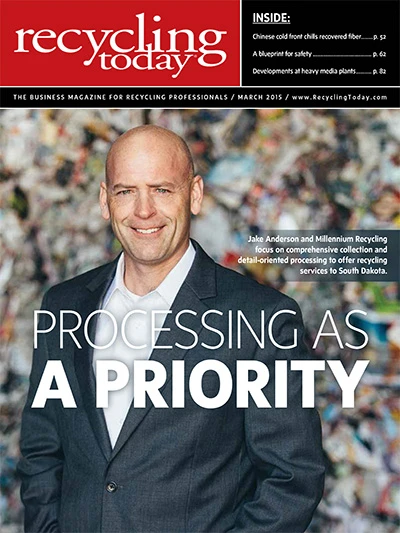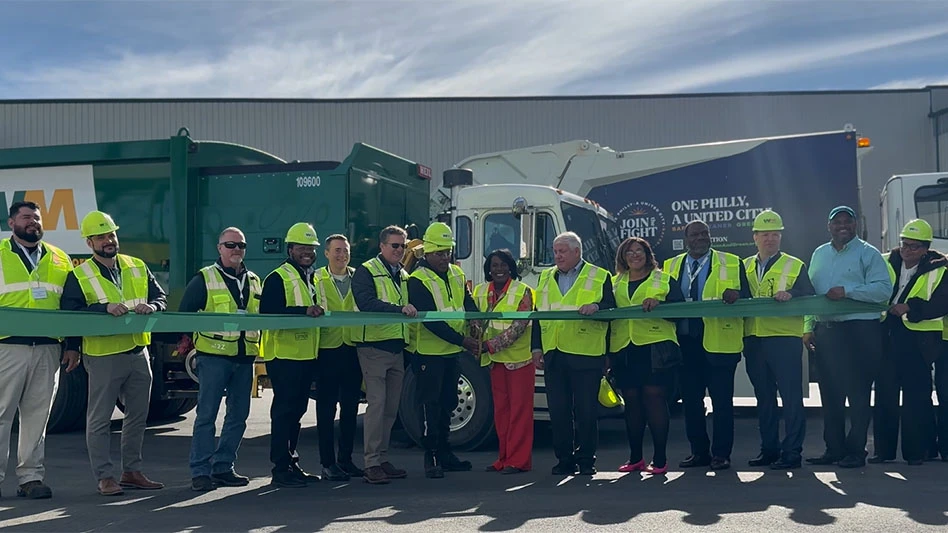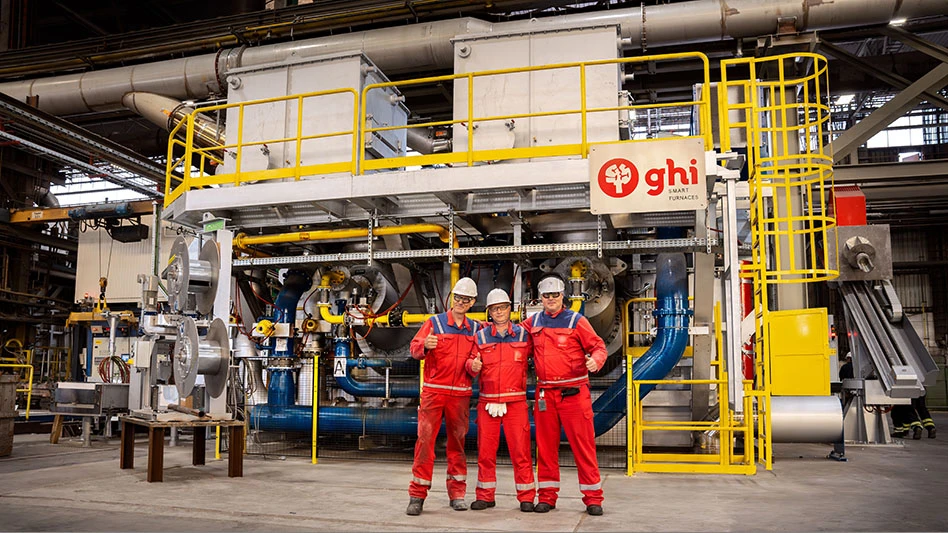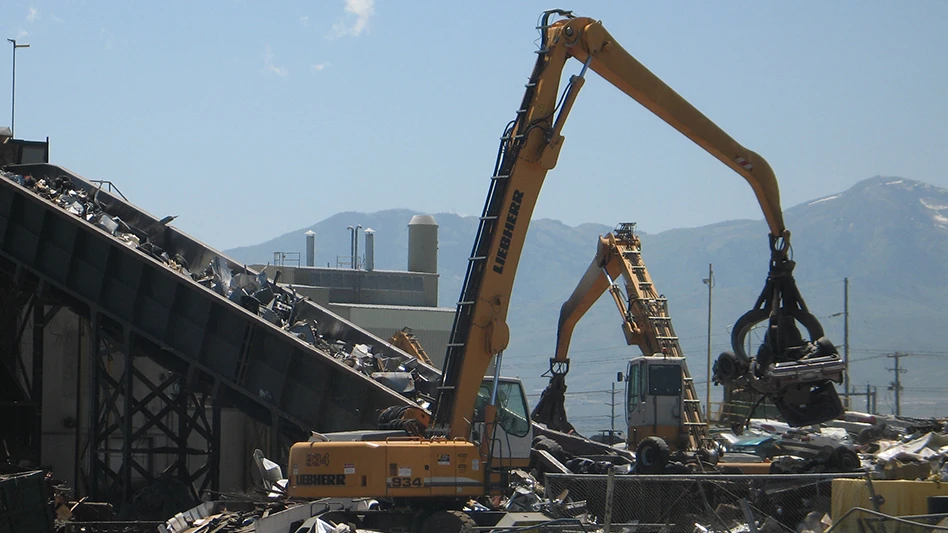 Everyone agrees that safety is an especially important piece of the puzzle when it comes to running your business. There are many good reasons to think this way. Accidents, injuries and property damage can be costly, not only to the company’s bottom line but also to employee morale. A daily focus on safety is a priority for successful business owners.
Everyone agrees that safety is an especially important piece of the puzzle when it comes to running your business. There are many good reasons to think this way. Accidents, injuries and property damage can be costly, not only to the company’s bottom line but also to employee morale. A daily focus on safety is a priority for successful business owners.
But how do you get a solid grasp on where your safety program is and how it should function?
A different perspective
Many scrap recycling companies have a full-time safety professional on staff or assign someone already on the roster to oversee safety. In many cases, this assigned person wears several hats: human resources, dispatch, fleet—the list goes on. Even the most seasoned safety professionals will tell you they could work 24 hours a day, seven days a week, and still not keep up with all the tasks needed to have one of the best safety programs in the business.
Striving for one of the best safety programs in the industry should be a goal that all CEOs, business owners and safety professionals have on their to-do lists. To achieve such a lofty goal, it is necessary to think outside of the box. One practical way to achieve this is to reach out to other like-minded professionals for ideas, advice and new ways of seeing things.
It is said that a fresh set of eyes on your business is a good thing. Having someone from outside your company look at your safety program and the goals you are trying to achieve is a good thing for every business. It may not result in hearing the words, “This is the best safety program I have ever seen,” but it will help you understand more about the direction you are going with your safety program and how to better achieve the goals you have set for your business.
For more than 10 years, members of the Washington-based Institute of Scrap Recycling Industries (ISRI) have taken advantage of the opportunity to invite one of ISRI’s on-staff safety professionals in to their businesses to act as a fresh set of eyes to assess their safety program. ISRI calls this outreach service a “safety blueprint.”
This safety blueprint, or more accurately, this safety assessment, is a full-day discussion among senior managers and selected employees that allows them to identify for themselves the strengths and weaknesses of 20 different elements of their safety programs. These elements include:
- management commitment;
- safety policies and procedures;
- safety performance;
- personal protective equipment;
- employee involvement;
- machine guarding;
- lockout/tagout;
- progressive discipline;
- rewards/recognition;
- new employee orientation;
- ongoing training;
- fall protection;
- self-inspection;
- accident investigation;
- lead/torching/respiratory protection;
- confined spaces;
- emergency disaster and planning;
- return to work;
- visitor controls/security; and
- transportation safety.
This safety program assessment begins with a detailed roundtable discussion with senior management and key employees. Current strengths are discussed, along with challenges and work in progress. Written safety programs are reviewed with corresponding training records. Facility inspection reports are noted where available. OSHA (Occupational Safety and Health Administration) records are viewed for accuracy, trends, frequency and severity.
Walking through
The ISRI safety team member will then walk your operations with an eye strictly on safety. Considering the previous concentration on written programs and reporting, a comparison is made to determine whether what is written and/or spoken is, in fact, practiced. For instance, basic personal protective equipment (PPE) requirements usually include safety glasses. If employees are seen without this form of PPE, the question of enforcement naturally follows. In the case of lockout, if a worker is seen inside a machine without virtue of a lock, steps are taken in the follow-up session to remedy this shortcoming.
This boots-on-the-ground element of the safety assessment is extremely important. ISRI’s safety outreach professionals have decades of collective experience. The opportunity to have them assess your business operations with an experienced set of eyes—focused on safety—is perhaps one of ISRI’s greatest benefits to its members.
Assessing strengths and challenges
After the walk-through, participants again come together to discuss what was seen—and not seen. Strengths are affirmed, while challenges are honestly addressed with suggestions for improvement.
One advantage the ISRI Safety Team brings to the table is, after hundreds of such assessments, solutions to current problems often have been seen elsewhere. While maintaining confidentiality, team members can convey practical answers to real-world challenges.
Business owners, operations managers, supervisors and line-level employees may go about their tasks with a singular focus that at times may cause them to overlook, or simply fail to see, certain safety issues. Having a fresh and experienced set of eyes walk through your facility is worth its weight in gold.
Throughout the past decade, hundreds of ISRI members have called upon these safety outreach professionals to visit their operations. Many of these ISRI members use the ISRI safety outreach staff annually. These repeat visits have helped companies build and strengthen their safety programs.
The ISRI Safety Team has been privileged to be a part of some members achieving OSHA’s Safety and Health Recognition Award (SHARP). This is one of OSHA’s top safety achievement honors to businesses.
“Safety is No. 1” is an often-used mantra in industry. While we strive to make this true, one goal of ISRI’s safety assessment is to give safety an equal seat at the table. Production, quality, payroll, human resources and logistics: Let’s put them all on equal footing. Make safety a part of business as natural as buying scrap.
Tapping into resources
It is said, “The best way to eat an elephant is one bite at a time.” In many ways, the safety discipline and safety function of a business is that elephant. It makes good sense to use all of the resources available.
As many readers can attest, the cost for having a third-party consultant perform a safety assessment matching this ISRI service is often thousands of dollars. This safety outreach service is a free benefit to ISRI members in good standing. Many ISRI members would affirm the ISRI Safety program assessment is a value beyond compare that comes with a membership.
For more information about how the ISRI Safety Team can help with your safety program, contact Lisa Hazell, ISRI safety program manager, at 202-662-8500 or at lisahazell@isri.org.
Tony Smith and Joe Bateman are ISRI’s safety outreach managers. They can be contacted at tonysmith@isri.org and at joebateman@isri.org, respectively.

Explore the March 2015 Issue
Check out more from this issue and find your next story to read.
Latest from Recycling Today
- ReMA accepting Lifetime Achievement nominations
- ExxonMobil will add to chemical recycling capacity
- ESAB unveils new cutting torch models
- Celsa UK assets sold to Czech investment fund
- EPA releases ‘National Strategy to Prevent Plastic Pollution’
- South Carolina launches recycling app
- Resource Recycling Systems transitions to employee ownership model, refreshes branding
- APR upgrades PCR certification program





